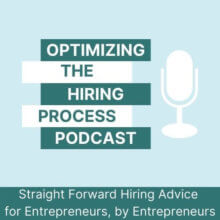Why Behavioral Interviews Matter in Modern Hiring
Behavioral interview questions are a vital tool for hiring managers and recruiters who want to go beyond a resume and uncover real-world traits. These questions reveal a candidate's proactiveness, ability to collaborate, handle change, manage time, lead others, and stay self-motivated.
Unlike surface-level questions, behavioral interviews help employers test how a candidate has responded to specific situations, letting you assess future performance based on past behaviors. In this guide, we’ll walk through strategic examples of behavioral interview questions to test for proactivity, teamwork, time management, adaptability, leadership, and self-discipline.
What Are Behavioral Interview Questions?
Behavioral questions focus on specific scenarios—past or hypothetical—and how candidates responded. This approach allows interviewers to assess:
-
- Problem-solving skills
-
- Social aptitude
-
- Critical thinking
-
- Decision-making ability
For instance, rather than asking "How do you handle stress?" a behavioral question might be: "Tell me about a time when you had to meet a tight deadline under pressure. How did you handle it, and what was the outcome?"
This method pushes candidates to share concrete examples, helping employers gauge not only what they say but also how they think and act under specific circumstances. There are many lists of good situational interview questions available online.
Customizing Questions for Your Needs
Behavioral interview questions should always align with the role’s requirements and your organization’s goals. Instead of relying on generic, pre-arranged questions, take time to tailor your approach for maximum insight. When reviewing a candidate's resume, identify key areas to explore further during the interview. Here’s how:
-
- Focus on Job Requirements: If the position requires strong sales skills, ask about real-world sales scenarios. Example: "Tell me about a time when you closed a challenging deal. What strategies did you use?"
-
- Highlight Key Traits: Identify essential traits for the role, such as conflict resolution, teamwork, or leadership, and build questions around them. Example: "Describe a time when you had to mediate a disagreement within your team. What steps did you take?"
-
- Encourage Storytelling: Frame questions that invite candidates to share detailed, real-life experiences. This not only reveals their problem-solving abilities but also sheds light on their personality and communication skills. Example: "Tell me about a time when you faced a major setback at work. How did you handle it, and what did you learn?"
Tailored questions provide deeper insights into a candidate’s suitability for the role, allowing you to build on the foundation provided by their resume and make more informed hiring decisions.
You can also tailor questions to test for specific traits like proactiveness or discipline. For example, try asking:
"Give an example of a time when you had to take initiative without being asked." or
"Tell me about a time when you had to stick to a difficult process or habit to succeed."
Questions Should Encourage Storytelling
Story responses have multiple steps. These answers allow you to hear whether candidates can accurately gauge a situation, highlight what experience they have, determine their ability to learn from mistakes and monitor their communication skills.
Important qualities that can be highlighted by asking situational interview questions include:
Teamwork Behavioral Interview Questions
Questions focusing on teamwork are some of the most effective behavioral interview questions. Most jobs, even the most independent or computer-based, require strong interpersonal communication skills.
Consider Independence
Ask questions that focus on the ability to complete tasks independently. Simple hypothetical scenarios or questions focusing on previously held positions can be revealing.
Leadership Behavioral Interview Questions
Ask candidates about times they’ve shown leadership or initiative. Leadership is crucial in many roles; incorporating leadership behavioral interview questions can reveal a candidate's potential.
Behavioral Questions vs. Traditional Questions
Traditional interview questions discuss a candidate’s experience, strengths, motivations, career expectations and goals, skills level, etc., focusing just in part on the person’s behaviors, personality, attitudes, etc. However, companies who want to hire talent and ensure retention, employee engagement, etc., should not refrain from using behavioral assessment tools.

NOTE: You need to find more than just a great person for the job (by experience and practical skills) but an excellent asset for the whole company. Therefore, recruiters should also bring some behavioral interview questions to the table.
The behavioral assessment contains a specific set of questions. The recruiter presents the candidates with several job-related situations they might have been in already. Next, interviewers ask them to describe how they behaved in those circumstances, their skills, and how they used them, their decision-making and thought process, etc.
NOTE: According to this guide (released by the Society for Human Resource Management), candidates should provide verifiable, concrete evidence of how they have dealt with issues in the past.

Acing a behavioral interview means the applicants managed to let their past work performance prove that they can do amazing things at the job offered by your company.
The Psychology and Logic Behind Behavioral Interview Questions
Most recruiters use queries along the lines of "What is your greatest strength/weakness?", "how do you handle tight deadlines?" or "What do you do to relieve stress at the office/at home?"
While such an approach offers employers some insight into a person’s behavior or resilience to pressure and challenge, it does not go in-depth.
For example, there’s nothing to prevent candidates from telling you they are not conflictual during the interview, but then starting fights with their colleagues in their first month on the job.
Moreover, used to such questions, serious applicants will do their homework and come up with prepared answers that once too often sound rehearsed and insincere.
The purpose of behavioral interview questions is not to catch candidates off-guard, put them in awkward situations, or make them feel unworthy of your job offer if they don’t deliver the answers you wanted to hear.
On the contrary, such an interview type focuses more on the person than on working experience, salary history, or technical/practical skills.

Listen to 'Optimizing the Hiring Process Podcast'
The interviewer asks a question about solving a specific situation, prompting the candidate to respond by giving an example/explanation of what they did. When it comes to the logic behind such an interview, most psychologists and HR experts agree that a candidate's success in the past is a good predictor of success in the future. The explanation is relatively simple and comes with a scientific background: even a small victory or positive feedback can build a person's confidence to go on doing what they did best.
Behavioral Interview Questions Types and Examples
An interviewer asks behavioral interview questions tailored to the job. If a candidate needs to deliver sensitive computer work within tight deadlines, you will not likely "grill" her/him with questions meant for face-to-face sales jobs. In this framework, let's see some examples!
1. Behavioral Interview Questions on Time Management
Time management is one of the most critical workplace competencies. Asking behavioral interview questions about time management helps you uncover how candidates handle pressure, balance priorities, and stay productive under deadlines. These questions often reveal other traits as well, like resilience, organization, and even proactiveness. Begin a conversation with the candidate following some of these topics:
1. Tell me about a time your tasks and responsibilities piled high enough for you to feel overwhelmed. What did you do? How would you do things differently in a similar situation?
2. Tell me about some decisions you made regarding your work or your team's workflow to handle the pressure of an important deadline or a pile of unfinished tasks.
3. What do you do when your work results depend on other colleagues' work, but they move slower than you?
4. If you tend to finish your tasks slower than your co-workers do, how do you feel about this? What do you do to improve the situation?
5. Give me an example of a situation when you had to deal with a work delay. What did you do?

Time management is a transferable skill, asking behavioral interview questions about time management can assess a candidate's ability to prioritize. By asking specific questions, you can also tap into frustration tolerance, conflict-solving, problem-solving skills, leadership abilities, and so on.
2. Adaptation and Flexibility
Adaptability and flexibility are especially important in today’s fast-changing work environments. Use behavioral interview questions about adaptability to evaluate how candidates respond to uncertainty, shifting priorities, and change. These questions also give insight into their problem-solving and proactive thinking skills.
Here are some adaptability behavioral interview questions to guide you:
1. Describe a time when a company you worked for went through significant changes. How did they make you feel? What did you do to adapt to the new situation?
2. Let's reminisce about your very first job. How was it in the beginning? What did you do to catch up and become a part of that organization?
3. Tell me about a mistake you made or a task you failed. How did you deal with it? Did you eventually fix it? How?
4. Give an example of a situation when you had to learn something very quickly. How did you approach the process?
Adaptation and flexibility can sometimes separate the "grunt" workers from the innovators you hired. Asking people about how they managed a challenging situation ties with their problem-solving skills, resilience to stress and frustration, imagination, innovation, and overall proactive thinking. Do you want people who gloom and doom when the company is going through a rough patch, or do you want some who come up with solutions and adjust to anything new, no matter how temporary?
3. Proactivity
Proactive employees don’t wait to be told what to do—they identify opportunities, anticipate obstacles, and take initiative. Use proactive interview questions to find out whether a candidate naturally takes ownership and acts ahead of problems. These questions help assess both mindset and behavior.
Proactive Interview Questions Examples:
-
Tell me about a time you solved a problem before it became urgent.
-
Describe a situation where you stepped up without being asked.
-
Give an example of when you anticipated a roadblock and planned around it.
-
Tell me about a time you went beyond your job description to get a task done.
-
What’s a recent example of a challenge you tackled without guidance?
These interview questions about being proactive help you evaluate candidates who are self-starters, fast thinkers, and forward planners—essential traits for fast-moving teams.
4. Teamwork Behavioral Interview Questions
Use behavioral interview questions about teamwork to identify how candidates contribute to group dynamics, resolve conflict, and motivate others. These questions reveal more than just collaboration skills—they show communication style, empathy, and influence. You can also test for team leadership behaviors by asking about past group challenges or how they helped a peer succeed. However, teamwork is still an excellent organizational value and skill, so you should always look for it:
1. Describe a situation when you had to work closely with somebody you did not like/whose personality was very different from yours. How did you handle it? What did you do?
2. Tell me about a situation when you disagreed with a manager/CEO and how you approached the problem/solved the conflict.
3. Give me an example of a situation when you clashed with a peer. How did you handle it?
4. Describe a situation when you had to get information/results from a colleague that was not too responsive or prone to help. What did you do?
5. Tell me about a past situation that you wish you had handled differently with a colleague.
6. Describe a time when someone without hierarchal authority over you or your team ordered you to do a task. How did you handle the situation?
7. Tell me about a situation when one of your teammates was slow in delivering a task/project. How did you motivate her/him to accomplish the task?
8. Give me an example when your team was behind schedule. What did you do?

Being a good team player is a criterion we find in all job descriptions. Nevertheless, it would help if you had people who can motivate others when things go south, be proactive about other colleagues, adapt to others' personalities, and be assertive in their relationships with peers and managers.
5. Intrinsic Motivation
Motivation is critical in roles that require discipline and self-starting. Use behavioral interview questions about discipline and motivation to assess how well a candidate can push through setbacks, maintain routines, and keep themselves and others on track. As psychologists and even recruiters know, the forces behind motivation are biological, cognitive, emotional, and social.
Here are some motivational behavioral interview questions to ask:
1. Give me an example of a situation when you enjoyed a task/project so much that you decided to learn more about that topic/subject on your own time to become better at performing it.
2. Describe a situation when you had to motivate a colleague or your team to perform a tedious, repetitive, or unpleasant task.
3. Give me an example of a situation you had to motivate yourself to start a task/project or finish it in due time.
4. Tell me about a time when you felt no pleasure, interest, or motivation to complete a specific task. How did you manage it?
While a company must increase employee motivation and find new ways to boost it to encourage growth, behavioral changes, competencies, creativity, competition, loyalty, and engagement, it is also essential to find people capable of self-motivating themselves and others. When it comes to intrinsic motivation, no amount of financial benefits will match a person's own willingness to evolve and grow better.
Why Behavioral Interviews Work
Behavioral interviews are grounded in the principle that past performance is a strong indicator of future success. By prompting candidates to share specific experiences, recruiters gain a clearer understanding of their problem-solving skills, decision-making processes, and ability to adapt to challenges.
Moreover, this approach reduces the risk of rehearsed answers, helping interviewers uncover genuine traits and behaviors.
Whether you’re evaluating time management, team leadership, or proactiveness, behavioral questions help you surface the real behaviors that drive performance, far more than general personality questions ever could.
Final Thoughts
You always have to customize the questions and prompt anecdotal storytelling from the candidates to trigger answers relevant to the job and your organization's values.
A great interview should be, in fact, a fantastic conversation. As a recruiter, you should navigate a behavioral interview in a considerate, mindful manner. Guide your candidate with helpful questions such as "And then what happened?", "What did he/she say then?", etc., so, in the end, you have a vivid and detailed story.
As we said before, an interview is not an interrogation. Try to mix in some traditional questions whose answers you need for your evaluation, behavioral interview questions, and even a couple of unusual ones if the organizational model allows for out-of-the-box approaches to the hiring process.
Incorporating behavioral interview questions around proactivity, discipline, teamwork, leadership, time management, and adaptability gives you a complete picture of how a candidate might perform in the real world. When you’re focused on more than just technical skills, you’ll build stronger, more reliable teams.
Have you ever used behavioral interview questions in your recruitment process? What other lines of inquiry did you employ? We’d love to hear about your experiences! You can consult with our hiring experts to learn insights on tools and techniques for improving your hiring process.

